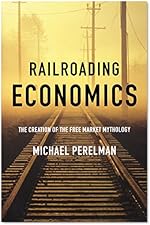Archive for September, 2005|Monthly archive page
Disaster pork & incompetence: the 9-11 prelude
Small firms got Sept. 11-related loans By JEFFREY GOLD, Associated Press Writer Last Updated 5:06 pm PDT Thursday, September 8, 2005 Get weekday updates of Sacramento Bee headlines and breaking news. Sign up here.
NEWARK, N.J. (AP) – Marina operator Joseph Palmisano said he is not sure if the terrorist attacks affected his business, but he knows that the $810,000 federal loan he got afterward helped him buy out his partner.
He wanted several million dollars to take control of AP’s Inlet in Belmar, which his father started in 1976, but was glad to get the lesser amount through a Small Business Administration loan.
“They were the only people who could give me the loan, I can tell you that,” Palmisano said.
The loan to AP’s Inlet was among about 700 the SBA approved for New Jersey companies, and one of about 19,000 loans made nationally to help small businesses recover from the Sept. 11 attacks.
However, the $5 billion effort sent many discounted loans to firms that did not need, or know that they were receiving, terrorism assistance, an Associated Press review has found.
The approvals in New Jersey totaled over $186 million, in amounts that ranged from $2,700 to $2 million. The agency was not able to determine how many of the loans were ultimately accepted.
AP’s Inlet, named for Palmisano’s father, founder Anthony Palmisano, got its loan under SBA’s STAR (Supplementary Terrorism Activity Relief) program, as did about 170 of the New Jersey loan recipients. STAR is among several Sept. 11 loan programs offered by the SBA.
Criteria for the STAR program are broad, allowing loans to a small business that “suffered economic harm or disruption of its business operations as a direct or indirect result of the terrorist attacks …”
Palmisano is not the only STAR recipient in New Jersey who suffered little fallout from the Sept. 11 attacks, which did have a widespread effect on the state. New Jersey lost 693 residents in the 2001 terrorist attacks, and many thousands watched from their homes or workplaces as the World Trade Center burned and collapsed across the Hudson River.
A $900,000 STAR loan made in October 2002 helped Andy Shah buy Oaklyn Discount Liquors, in Oaklyn, N.J., Shah said. His store is among at least eight liquor stores in New Jersey that were awarded Sept. 11 loans.
Perhaps not as surprising were the number of loans approved that were associated with travel: 83 to limousine companies, 23 to travel agencies, seven to taxi services and six to tour operators.
Some 19 Dunkin’ Donuts stores in New Jersey were approved for STAR loans, which ranged from $277,000 to $1.45 million, making them the state’s leading franchise operation in the loan program.
Dunkin’ Donuts stores are individually owned, although some franchisees in New Jersey own several stores, said Andrew Mastrangelo, a spokesman for parent company Dunkin’ Brands Inc., of Canton, Mass. The parent company did not provide its operators with any information on the SBA program, he said.
“We didn’t do anything of the sort,” Mastrangelo said. “We didn’t make any kind of formal announcement. We didn’t have any meeting.”
New Jersey’s proximity to the World Trade Center contributed to the loss of life among state residents, since many residents worked in New York, but also brought it more business immediately after the attacks, a Rutgers University analyst found.
Financial jobs shifted across the river for several months during the cleanup phase, said James W. Hughes, dean of the Edward J. Bloustein School of Planning and Public Policy at Rutgers.
Hughes said consumer spending that normally would have been done in Manhattan appears to have moved to New Jersey for a while after the attacks, such as at spas and restaurants.
“Surprisingly, consumers just didn’t go into a hole. It was like, when the going gets tough, the tough go shopping,” Hughes said. For instance, he noted that October 2001 auto sales were good in New Jersey and nationally.
He contrasted this to the first Iraq war, when “people stayed glued to the TV sets and didn’t go out.”
Not enough people went out to the Family Twin Cinema in Wrightstown for the movie theater to survive after Sept. 11, according to the operator of the movie theater, Jimmie Vera, who blamed road closures through nearby Fort Dix for making it harder for audience members to drive over.
“I was averaging $30,000 a month, and then after 9-11, the government closed the roads, and business went down big-time,” said Vera, 41, who said he rented the shuttered theater in early 2001 but had to close in early 2003 despite getting a $44,300 loan in November 2001.
That loan was under an SBA program, EIDL (Economic Injury Disaster Loans) for business that “suffered substantial economic injury,” according to agency guidelines.
He said local and military officials promised the roads would be reopened in six months, but, “The roads never opened up, and it caused a financial disaster for me.”
Vera said he moved back to Columbus, Ohio, and re-enlisted in the Army National Guard. He said he still owes about $41,000 on the loan.
Fort Dix spokeswoman Carolee Nisbett said that a bypass from Pemberton to Wrightstown opened in spring 2005, but that the main route through the base, Texas Avenue, remains closed to the public.
One of the smallest loans approved for a New Jersey company was $3,600, to Istanbul Inc., a candy import business operated by Matt Dagistanli of Rutherford. It wasn’t enough, he said.
“It helped me a lot to help me survive, but I needed more to develop my business, which I couldn’t get, because I didn’t have credit in those days,” said Dagistanli, 44, who said he was a naturalized citizen originally from Turkey.
“If they had been able to give me more money, 30 or 40,000, I would have been able to survive,” he said.
The loan was under an SBA program for companies in the area of the World Trade Center disaster, and Rutherford is just 10 miles away.
But proximity wasn’t the problem for Dagistanli, who said his main market for the candy was gift shops and gourmet stores.
“After 9-11, people for quite some time did not order as much … and that dropped the sales,” he said. “I was swimming against the flow.”
The candy business, which was a part-time venture, eventually closed, and Dagistanli said he now is making a living by making mortgages.
Truly Scary Display of Callousness by the World Bank and IMF in Niger
from Pambazuka weekly at http://www.fahamu.org
NIGER: THE IMF AND WORLD BANK’S INVISIBLE WAR ON AFRICANS Judith Amanthis
Drought and famine are not normal conditions for any group of human beings, but what is normal is people in the west being lied to about the causes, writes Judith Amanthis, who lists various IMF policies as being responsible for the food crisis in Niger.
The IMF and the World Bank, and the EU as well, are killing Africans in their thousands in Niger, Mali and throughout the Sahel region of Africa. By August this year in Niger alone, three million are threatened with death from starvation. Up to 800,000, especially children, have already died. Niger is the second most impoverished country on this earth. Starvation, according to one aid agency, is normal there.
Drought and locusts destroyed crops, it’s true, but the rains were down only 11% from normal. There is some food in Niger. The problem is that large numbers of people, especially in the rural areas, are just too poor to buy it when their crops fail. Why? First, subsistence farming in Africa doesn’t bring in much money, or any money. It has no western financial backers. Second, in March 2005 the Niger government, having secured Highly Indebted Poor Country status for Niger, implemented an IMF condition on further loans: it put a 19% VAT on basic grains whose price had risen by up to 89% over the past five years. Traders naturally sell to the highest bidder. In this case they sold grains to other West African countries. The free market knows no borders, colonial or otherwise.
Many of the rural people in the Sahel region are nomadic livestock farmers. In Niger the market in livestock has slumped. Farmers who would have sold cattle and other stock to bring in money to buy food are now unable to sell starving animals on a glutted market where prices have fallen by 25% over the past five years. Many villages are now almost entirely women, children and the old, because the men have gone to the urban areas or other African countries in search of food, work and money. African women and children are as usual forced onto the front line.
But the western picture of starving peasant women and their children is one-sided. In March hungry women and men in Niamey, Maradi and Tahoua came out in protest against food prices. Placards read, ‘We’re hungry. Help us’. So there are angry urban dwellers and workers as well, who are well-organised and prepared to risk imprisonment – the government’s response to the protest, according to one source – to get what they need. The pattern is similar throughout Africa. The people’s struggle to survive and pressurise their governments into acting for them rather than for the western powers gets left out of the news altogether.
One of the IMF’s most shocking acts of war against Africans in Niger has been to demand another condition on aid: the sale of emergency grain reserves. Over the past five years, this policy has contributed to famines in other parts of Africa, notably Malawi in 2002 and again this year. In fact famine stalks large swathes of central Africa. The rationale? Cheap grain is not to flood the market before harvest time. For this reason, the Niger governments cheap grain came on the market too late and too expensive.
Long term drought and famine can never be normal for any group of human beings. What is normal is people in the west being lied to about the causes of Africans’ suffering and what Africans are doing about it.
Western oil and forestry companies who have created climate change are as implicated as well. Western Europe and the US are responsible for 50% of the world’s carbon emissions, and forestry multinationals are destroying the earth’s ‘lungs’, including the great Congo River Basin forest, at 26 hectares a minute (37 football pitches). Greater heat and erratic rain in the Sahel region means the Sahara Desert is creeping south. Areas like northern Nigeria and Senegal are drying up as well. In erratic weather, locusts breed more heavily, but since the mid 1980s, the West African regional organisation, OCALAV, which was set up at independence in the early 1960s to control locust swarms and other plagues has been restructured. Its funding has been cut. African governments which have restructured entire economies to make life easier for multinationals can no longer pay for services vital to the people’s survival.
These same governments – eight throughout the Sahel and West Africa – have welcomed US military personnel into their armies so that young African men can be trained to protect western imperialism in the ‘war on terror’.
As for cross border and selective use of pesticides, first, it’s unaffordable by African governments, and second, it’s unmanageable. Inter-governmental co-operation has broken down in the age of G8 grotesqueries. Live 8 put money in western multinational and individual bank accounts, period. Killing locusts at the hopper stage, before they take flight – often across colonial borders and devour people’s crops, is essential. Whatever the pros and cons of using pesticides to control locust swarms, ordinary Africans have, over a period of hundreds of years, had control of their environment stolen from them, and with genocidal consequences.
In June this year, President Tanja of Niger met with George Bush. As well as the Sahel regions strategic importance in the war on terror, Niger is the worlds third largest uranium exporter. A new generation nuclear arsenal is in the US pipeline and Tanja is handing Africas uranium to US arms manufacturers on a plate.
In early August, Tanja was vilified in the western media for denying that millions of people were starving and for complaining that only a fraction of the promised aid from the west had arrived. At the same time the UN congratulated the government of Mali for dealing better with the imminent death by starvation of millions more Africans. The argument is clear: if some African governments are efficient enough to keep the lid on wholesale famine, the problem must be down to an individual, to who holds presidential office. What wasn’t mentioned was that the free food handed out by the UN and the government to people in Mali was, according to a BBC World Service report, only obtainable in one particular area if you worked for an Oxfam water development project. The reporter asked a woman who was digging a hole to conserve rain water if she was happy to be getting food. She and everyone else working with her laughed uproariously.
* This article is from Kilombo, the African Liberation Support Campaign Network’s journal.
Taxes and the Katrina Tragedy
Greg LeRoy. 2005. The Great American Jobs Scam: Corporate Tax Dodging and the Myth of Job Creation (San Francisco: Berrett-Koehler) reports that credible sources estimate that corporations extract $50 billion per year in state and local government subsidies designed to lure businesses or keep them from moving away.
$50 is smaller than the estimated $100 billion losses from Katrina, but it is an annual figure. Coupled with the massive state and federal corporate tax cuts, we should not be surprised that national infrastructure is deteriorating.
Remember Clinton’s initial promise to get the country moving by spending $19 billion to develop the infrastructure. That proposal went the way of gays in the military.
The big problem is if we keep cutting taxes how we be able to afford keeping Halliburton afloat.
 Leave a comment
Leave a comment
 25 – The Confiscation of American Prosperity: From Right-Wing Extremism and Economic Ideology to the Next Great Depression
25 – The Confiscation of American Prosperity: From Right-Wing Extremism and Economic Ideology to the Next Great Depression 30 – Manufacturing Discontent: The Trap of Individualism in Corporate Society
30 – Manufacturing Discontent: The Trap of Individualism in Corporate Society Class Warfare in the Information Age
Class Warfare in the Information Age Railroading Economics: The Creation of the Free Market Mythology
Railroading Economics: The Creation of the Free Market Mythology Steal This Idea: Intellectual Property Rights and the Corporate Confiscation of Creativity
Steal This Idea: Intellectual Property Rights and the Corporate Confiscation of Creativity The Invention of Capitalism: Classical Political Economy and the Secret History of Primitive Accumulation
The Invention of Capitalism: Classical Political Economy and the Secret History of Primitive Accumulation The Perverse Economy: The Impact of Markets on People and the Environment
The Perverse Economy: The Impact of Markets on People and the Environment